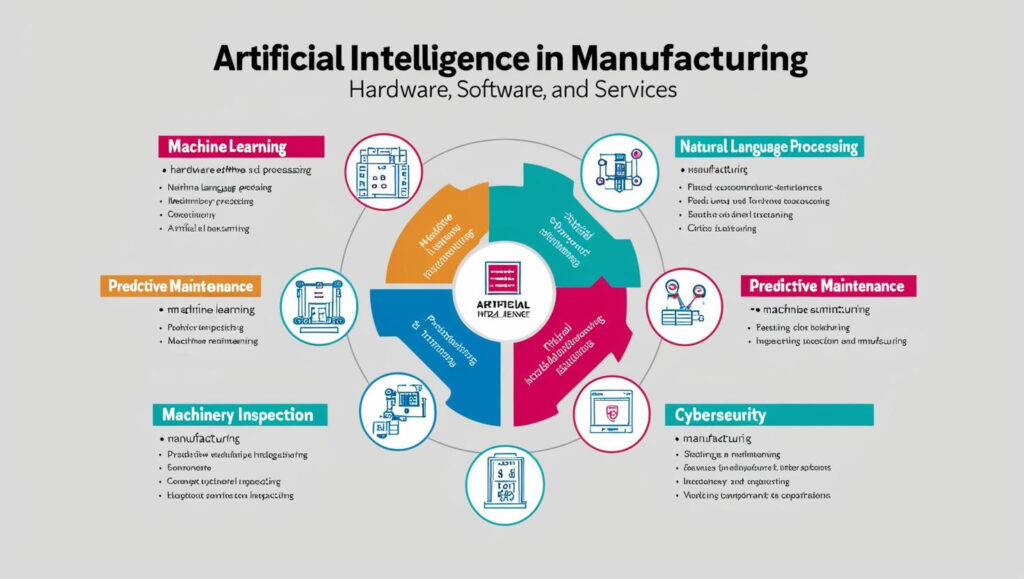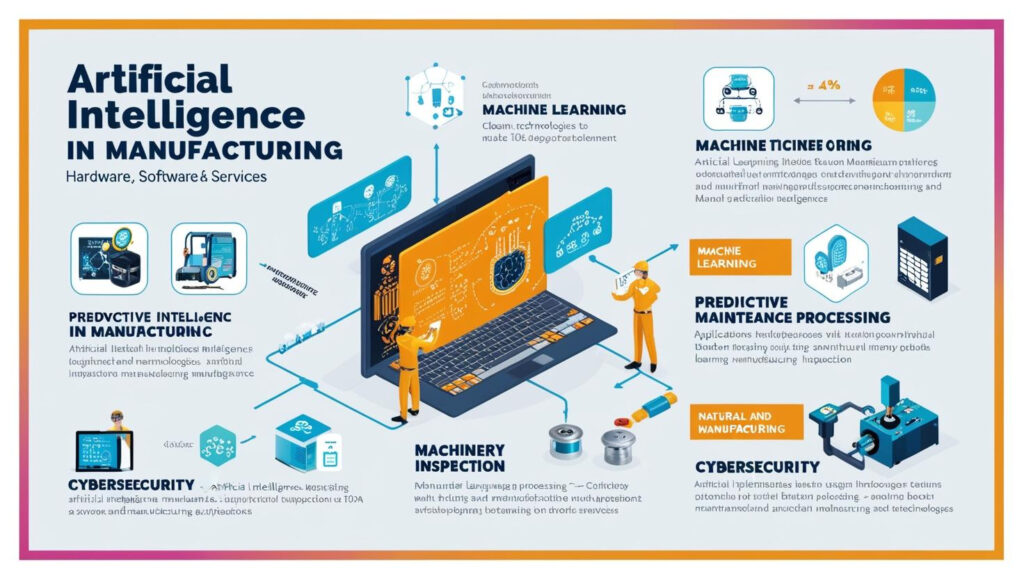Artificial Intelligence (AI) is revolutionizing industrial manufacturing by enhancing automation, efficiency, and precision. AI-driven technologies, including machine learning, robotics, and computer vision, are transforming production processes, enabling predictive maintenance, improving quality control, and optimizing supply chains. However, while AI presents significant opportunities for manufacturers, it also brings challenges that need to be addressed for successful implementation.

Download PDF Brochure @ https://www.marketsandmarkets.com/pdfdownloadNew.asp?id=72679105
Opportunities of AI in Industrial Manufacturing
- Enhanced Automation and Productivity AI-powered automation reduces human intervention in repetitive and complex tasks, leading to increased productivity. Industrial robots equipped with AI can operate 24/7, reducing downtime and enhancing overall efficiency.
- Predictive Maintenance and Reduced Downtime AI-driven predictive maintenance analyzes real-time equipment data to detect potential failures before they occur. This helps manufacturers reduce unplanned downtime, lower maintenance costs, and improve equipment longevity.
- Improved Quality Control AI-powered vision systems and deep learning algorithms enable precise defect detection and quality control. Automated inspections ensure consistent product quality while reducing errors and waste.
- Optimized Supply Chain Management AI enhances supply chain management by analyzing demand patterns, forecasting inventory needs, and streamlining logistics. This results in cost savings and improved operational efficiency.
- Customization and Smart Manufacturing AI-driven analytics enable manufacturers to implement mass customization, tailoring products to specific customer needs without compromising efficiency. Smart factories leverage AI to dynamically adjust production based on real-time data.
- Energy Efficiency and Sustainability AI-driven energy management systems optimize power consumption, reducing operational costs and promoting sustainable manufacturing practices. AI helps industries monitor and control energy usage efficiently.

Challenges in Implementing AI in Manufacturing
- High Initial Investment Costs Deploying AI-driven automation requires significant investment in advanced machinery, software, and infrastructure. Small and medium-sized enterprises (SMEs) may face financial constraints in adopting AI solutions.
- Skill Gaps and Workforce Adaptation The integration of AI in manufacturing demands a workforce skilled in data analytics, AI programming, and robotics. Upskilling employees to work alongside AI-driven systems is crucial but poses a challenge for many companies.
- Data Privacy and Cybersecurity Risks AI relies on vast amounts of data for decision-making, increasing concerns about data security and privacy. Manufacturers must implement robust cybersecurity measures to protect sensitive information from potential threats.
- Integration with Legacy Systems Many manufacturing facilities operate with outdated legacy systems that may not be compatible with AI technologies. Upgrading infrastructure to accommodate AI-driven automation can be complex and costly.
- Regulatory and Ethical Considerations The adoption of AI in manufacturing raises ethical concerns regarding job displacement and decision-making transparency. Regulations must evolve to ensure responsible AI usage while balancing innovation and workforce protection.
AI is reshaping industrial manufacturing by driving automation, enhancing productivity, and optimizing supply chains. While the benefits are substantial, challenges such as high costs, skill gaps, and cybersecurity risks must be addressed. Manufacturers that strategically implement AI solutions while focusing on workforce development and security measures will gain a competitive edge in the evolving industrial landscape. The future of industrial manufacturing is AI-driven, promising smarter, more efficient, and sustainable production processes.